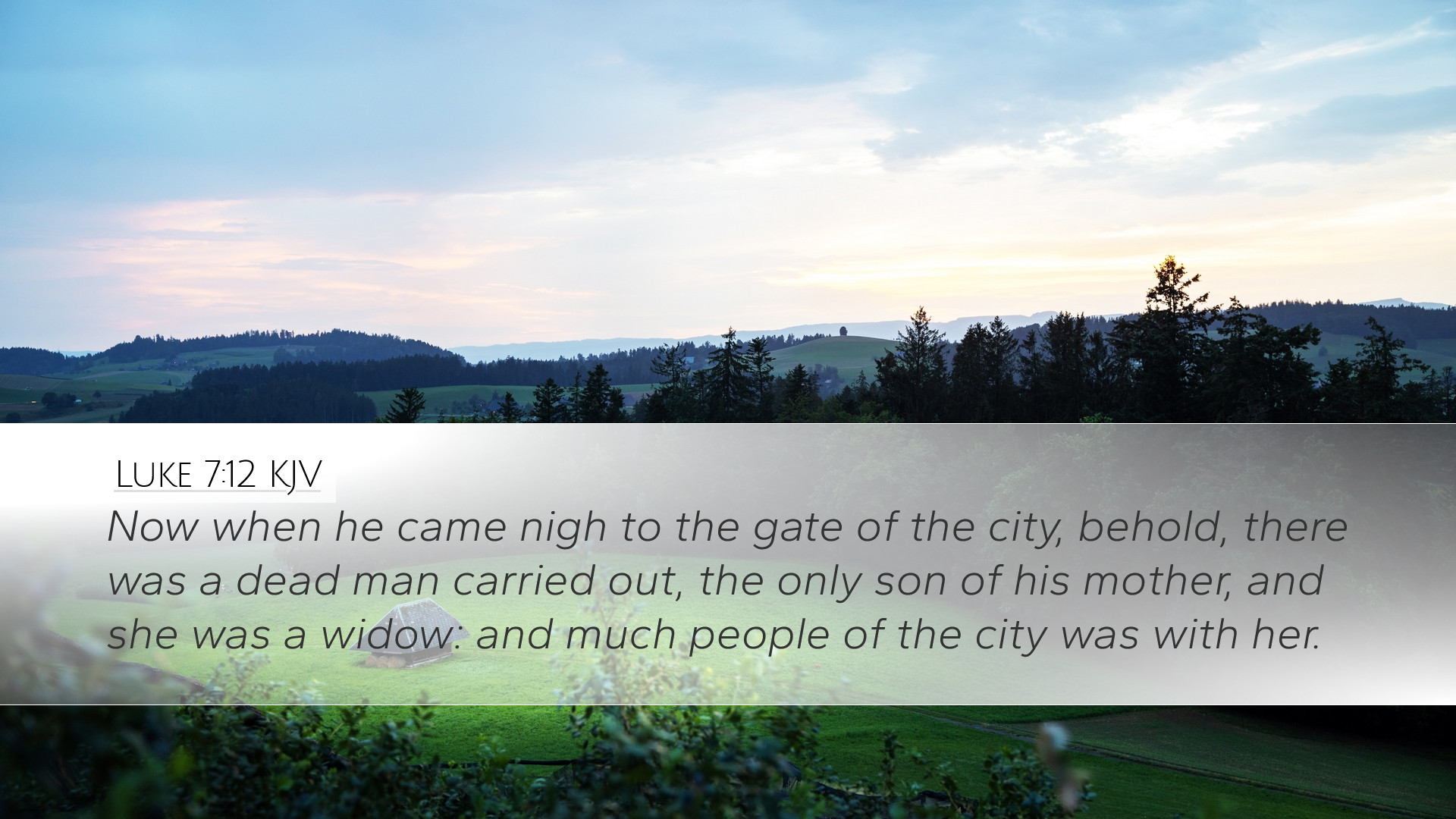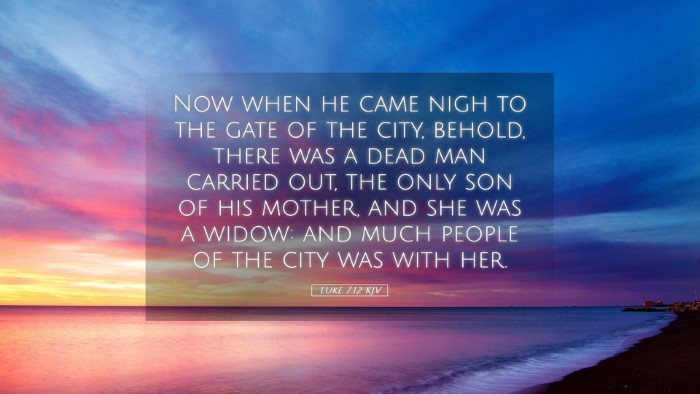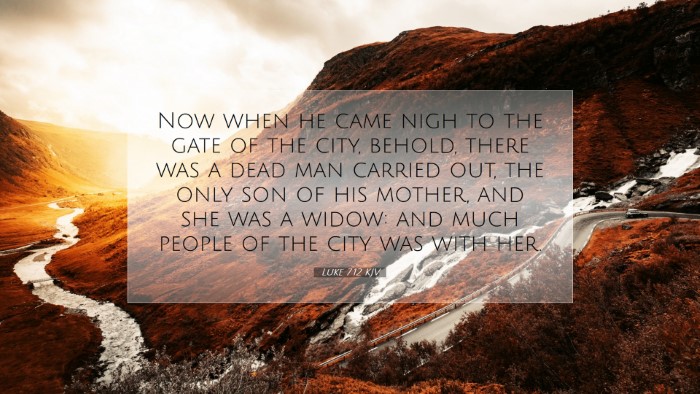Commentary on Luke 7:12
Luke 7:12 states, "As he approached the city gate, a dead person was being carried out—the only son of his mother, and she was a widow. And a large crowd from the town was with her." This verse introduces a poignant moment in the life of Jesus, showcasing His compassion and the significance of the events that unfold.
Contextual Overview
This passage occurs shortly after Jesus has healed the servant of a centurion, emphasizing His authority and compassion. The narrative immediately preceding Luke 7:12 depicts Jesus’ growing reputation and power in Galilee, where He manifests divine authority through miracles.
Insights from Matthew Henry
Matthew Henry highlights the significance of the widow's loss, portraying her as embodying deep sorrow and loss. He comments:
- Grief of the Widow: The woman in this narrative is not only a widow but also has lost her only son. This dual loss signifies profound isolation and vulnerability in a society where women were often dependent on their male relatives.
- Symbolism of the City Gate: The city gate serves as a point of transition—from life to death. It underscores the cultural and spiritual significance of boundaries and entrances in biblical texts, often representing light confronting darkness.
- Compassion of Christ: Jesus did not wait for an invitation. His timing reflects His divine purpose—He intervenes in the middle of despair, showcasing His heart for the brokenhearted.
Insights from Albert Barnes
Albert Barnes provides further elaboration on this significant moment in Luke's Gospel:
- Significance of the Son: Barnes notes that the mention of the son being her only child highlights a profound sense of loss, stressing the theme of death and resurrection that pervades the Gospel.
- Crowd Dynamics: The large crowd accompanying the widow suggests a communal acknowledgment of her grief, illustrating the collective understanding of loss within social contexts. This is essential for understanding societal responses to death in the Jewish culture.
- Foreshadowing of Power Over Death: The juxtaposition of Jesus’ arrival with the funeral procession foreshadows His authority over death, which will be made manifest in miraculous acts—specifically, in the resurrection of the dead.
Insights from Adam Clarke
Adam Clarke’s commentary provides a broader theological perspective on Luke 7:12:
- Theological Implications: Clarke emphasizes the compassion of Jesus as an attribute of God. He draws a parallel between this account and the broader themes of redemption throughout Scripture, indicating that Jesus' actions stem from divine empathy.
- Miracles as Signs: Clarke explores how miracles serve as signs that validate Jesus' messianic identity. The miracle of raising the widow's son—though not yet performed in this verse—is a narrative device to illustrate Jesus’ divine reassurances to humanity in times of sorrow.
- Role of Faith: While this specific account does not explicitly mention the woman's faith, it is indicative of the broader theme in Luke that highlights faith (or the absence thereof) in the healing narratives.
Theological Reflections
The intersection of life and death in Luke 7:12 provides critical theological insights that can be beneficial for pastors and theologians:
- Christ's Compassion: This passage illustrates the depth of Christ's compassion. It invites reflection on how followers of Christ should emulate this compassion in their ministries.
- Life Amidst Death: The image of Jesus confronting death at the city gate serves as a powerful metaphor for the Christian message—life through death and resurrection. It encourages believers to consider how they respond to death in their own lives and the lives of others.
- Community in Grief: The presence of the crowd signifies the importance of community in the midst of personal grief, opening discussions on pastoral care and the role of the church in providing support during times of distress.
Practical Applications
As one reflects on Luke 7:12, certain practical applications emerge:
- Engaging with the Suffering: Followers of Christ are called to engage with those who suffer, reflecting Christ’s compassion in their communities.
- Hope in Despair: This passage offers a message of hope, reminding believers that Christ is present even in the darkest moments, offering comfort and intervention.
- Emphasis on Faith: Encouraging individuals to cultivate faith, especially during suffering, reminds the church of its role in fostering spiritual growth through trials.
Conclusion
Luke 7:12 serves as a profound reminder of the compassion of Christ. The insights gained from public domain commentaries enrich our understanding of this passage and its applications to our lives today. As we engage with this scripture, let us draw on the depth of emotion, the theological insights, and the call to embody the compassion of Christ in a world alike to the widow's plight.


